
Director
A pioneering post-war female film director, an instigator of the New Wave who was honored by Hollywood in her own lifetime, Agnès Varda has become a source of inspiration for a whole new generation of young filmmakers. With movies like Cléo de 5 à 7, Le Bonheur, Sans toit ni loi, Les Glaneurs et la glaneuse, she created a quirky, open to the world, sensitive to the disenfranchised, often silly body of work. Always one finger on the pulse, she shook everything up, including cinema itself which she refused to constrict to pure fiction or long-form films.
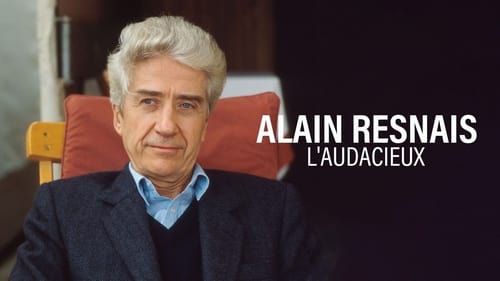
Director
A genius inventor of forms, Alain Resnais is one of the fathers of cinematic modernity. This portrait, rich in archives, looks back on the career of a discreet non-conformist, in perpetual search of renewal to fight against anxiety.
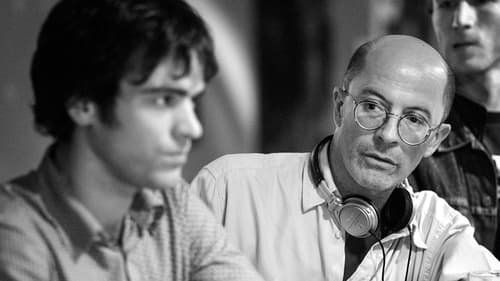
Editor
In eight films, Jacques Audiard has renewed French cinema, without alienating either the critics or the success. It is only at the age of 42 that he starts directing, after having been an editor and a scriptwriter. In 1994, he directed his first film, "Regarde les hommes tomber", whose conflicting shooting was an ordeal for this misanthropic beginner. It was with "Sur mes lèvres", in 2001, that he forged his cinematographic language: contained lyricism, deliberate imperfection of images, ellipses plunging the audience into a maelstrom of sensations. With each of his films, Jacques Audiard intends to renew himself, at the cost of challenges and doubts always more vivid.

Writer
In eight films, Jacques Audiard has renewed French cinema, without alienating either the critics or the success. It is only at the age of 42 that he starts directing, after having been an editor and a scriptwriter. In 1994, he directed his first film, "Regarde les hommes tomber", whose conflicting shooting was an ordeal for this misanthropic beginner. It was with "Sur mes lèvres", in 2001, that he forged his cinematographic language: contained lyricism, deliberate imperfection of images, ellipses plunging the audience into a maelstrom of sensations. With each of his films, Jacques Audiard intends to renew himself, at the cost of challenges and doubts always more vivid.

Director
In eight films, Jacques Audiard has renewed French cinema, without alienating either the critics or the success. It is only at the age of 42 that he starts directing, after having been an editor and a scriptwriter. In 1994, he directed his first film, "Regarde les hommes tomber", whose conflicting shooting was an ordeal for this misanthropic beginner. It was with "Sur mes lèvres", in 2001, that he forged his cinematographic language: contained lyricism, deliberate imperfection of images, ellipses plunging the audience into a maelstrom of sensations. With each of his films, Jacques Audiard intends to renew himself, at the cost of challenges and doubts always more vivid.
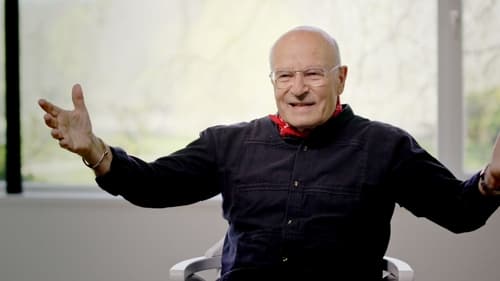
Writer
The life and work of the brilliant German filmmaker Volker Schlöndorff, a cross-border artist who, by leaving Germany and making the whole world his place of work, acquired the objective perspective necessary to portray his country's society better than anyone else while providing a unique and original point of view on the troubled history of the European continent.

Director
The life and work of the brilliant German filmmaker Volker Schlöndorff, a cross-border artist who, by leaving Germany and making the whole world his place of work, acquired the objective perspective necessary to portray his country's society better than anyone else while providing a unique and original point of view on the troubled history of the European continent.
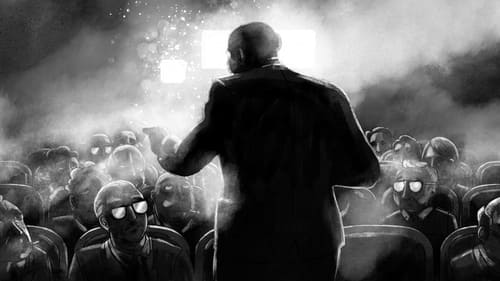
Editor
Paris, 1940. German occupation forces create a new film production company, Continental, and put Alfred Greven – producer, cinephile, and opportunistic businessman – in charge. During the occupation, under Joseph Goebbels’s orders, Greven hires the best artists and technicians of French cinema to produce successful, highly entertaining films, which are also strategically devoid of propaganda. Simultaneously, he takes advantage of the confiscation of Jewish property to purchase film theaters, studios and laboratories, in order to control the whole production line. His goal: to create a European Hollywood. Among the thirty feature films thus produced under the auspices of Continental, several are, to this day, considered classics of French cinema.

Writer
Paris, 1940. German occupation forces create a new film production company, Continental, and put Alfred Greven – producer, cinephile, and opportunistic businessman – in charge. During the occupation, under Joseph Goebbels’s orders, Greven hires the best artists and technicians of French cinema to produce successful, highly entertaining films, which are also strategically devoid of propaganda. Simultaneously, he takes advantage of the confiscation of Jewish property to purchase film theaters, studios and laboratories, in order to control the whole production line. His goal: to create a European Hollywood. Among the thirty feature films thus produced under the auspices of Continental, several are, to this day, considered classics of French cinema.

Director
Paris, 1940. German occupation forces create a new film production company, Continental, and put Alfred Greven – producer, cinephile, and opportunistic businessman – in charge. During the occupation, under Joseph Goebbels’s orders, Greven hires the best artists and technicians of French cinema to produce successful, highly entertaining films, which are also strategically devoid of propaganda. Simultaneously, he takes advantage of the confiscation of Jewish property to purchase film theaters, studios and laboratories, in order to control the whole production line. His goal: to create a European Hollywood. Among the thirty feature films thus produced under the auspices of Continental, several are, to this day, considered classics of French cinema.

Writer

Director

Narrator (voice)

Editor

Writer

Director

Director
Based on unpublished interviews with the family, Jean-Claude Carrière, his writer and biographer, family archives, mini-fictions that dramatize the memories evoked and in constant echo with the upcoming films whose images seem to crystallize over the narrative, we wish to reinterpret Luis Buñuel's work through these decisive years, revealing hidden coherence, originality and beauty.
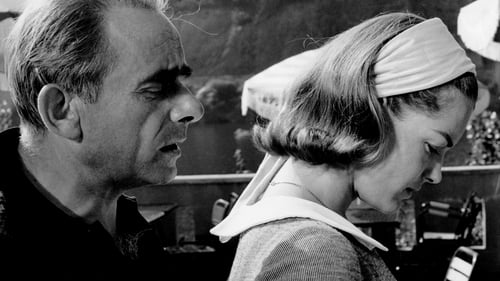
Writer
Great filmmakers claim the artistic influence of French director Henri-Georges Clouzot (1907-1977), a master of suspense, with a unique vision of the world, who knew how to offer both great shows and subtle studies of characters. Beyond the myth of the tyrannical director, a contrasting portrait of a visionary, an agitator, an artist against the system.

Editor
Great filmmakers claim the artistic influence of French director Henri-Georges Clouzot (1907-1977), a master of suspense, with a unique vision of the world, who knew how to offer both great shows and subtle studies of characters. Beyond the myth of the tyrannical director, a contrasting portrait of a visionary, an agitator, an artist against the system.

Director
Great filmmakers claim the artistic influence of French director Henri-Georges Clouzot (1907-1977), a master of suspense, with a unique vision of the world, who knew how to offer both great shows and subtle studies of characters. Beyond the myth of the tyrannical director, a contrasting portrait of a visionary, an agitator, an artist against the system.

Writer

Director

Director

Writer
A short featurette on "Cesar and Rosalie"

Director
A short featurette on "Cesar and Rosalie"

Director
An interview with Jean-Luc Godard by Dominique Maillet and Pierre-Henri Gibert, filmed on August 10, 2010 at the Hôtel de Vendôme in Paris.

Writer
L'essence des formes (The Essence of Forms), a documentary from 2010 in which collaborators and admirers of Bresson’s, including actor François Leterrier and director Bruno Dumont, share their thoughts about the director and his work.

Director
L'essence des formes (The Essence of Forms), a documentary from 2010 in which collaborators and admirers of Bresson’s, including actor François Leterrier and director Bruno Dumont, share their thoughts about the director and his work.

Director
A documentary about the making of Jean-Pierre Melville's 1949 film "Le silence de la mer"

Writer
A short documentary about Georges Franju.

Director
A short documentary about Georges Franju.

Director
In this documentary, film historian Natacha Laurent places Eisenstein's work in the context of the Communist Revolution and contemporary Soviet filmmaking.

Director
A featurette on "The Things of Life"
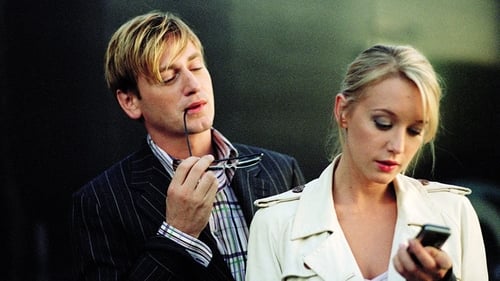
Uma bela jovem de 25 anos vive cercada por livros com sua mãe em Lyon, onde trabalha como a Garota do Tempo em um canal de TV a cabo. Certo dia, em um evento, ela conhece um grande escritor que é casado e trinta anos mais velho, e que acaba seduzindo a garota. Logo o homem se apaixona por ela, mas então descobre que terá de disputar o seu amor com um jovem milionário e desequilibrado. Assim, a garota se vê dividida, no meio de dois homens completamente diferentes, numa disputa pelo seu amor.

Screenplay

Director

Director
The original image or the first image. That of the first film, that of all the promises. The matrix image announcing all those to come. The history of cinema is full of legendary first movies, master strokes rather than test shots. There is a lot to be learned from the early plants of estrean directors who later became great filmmakers.



















